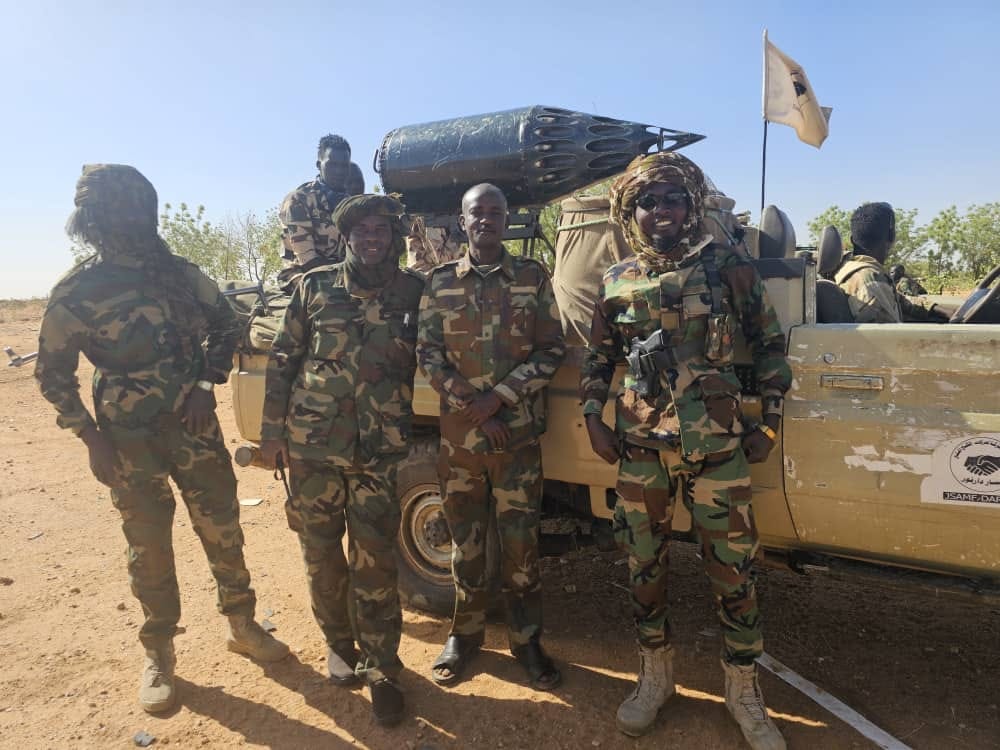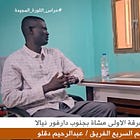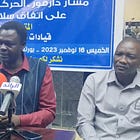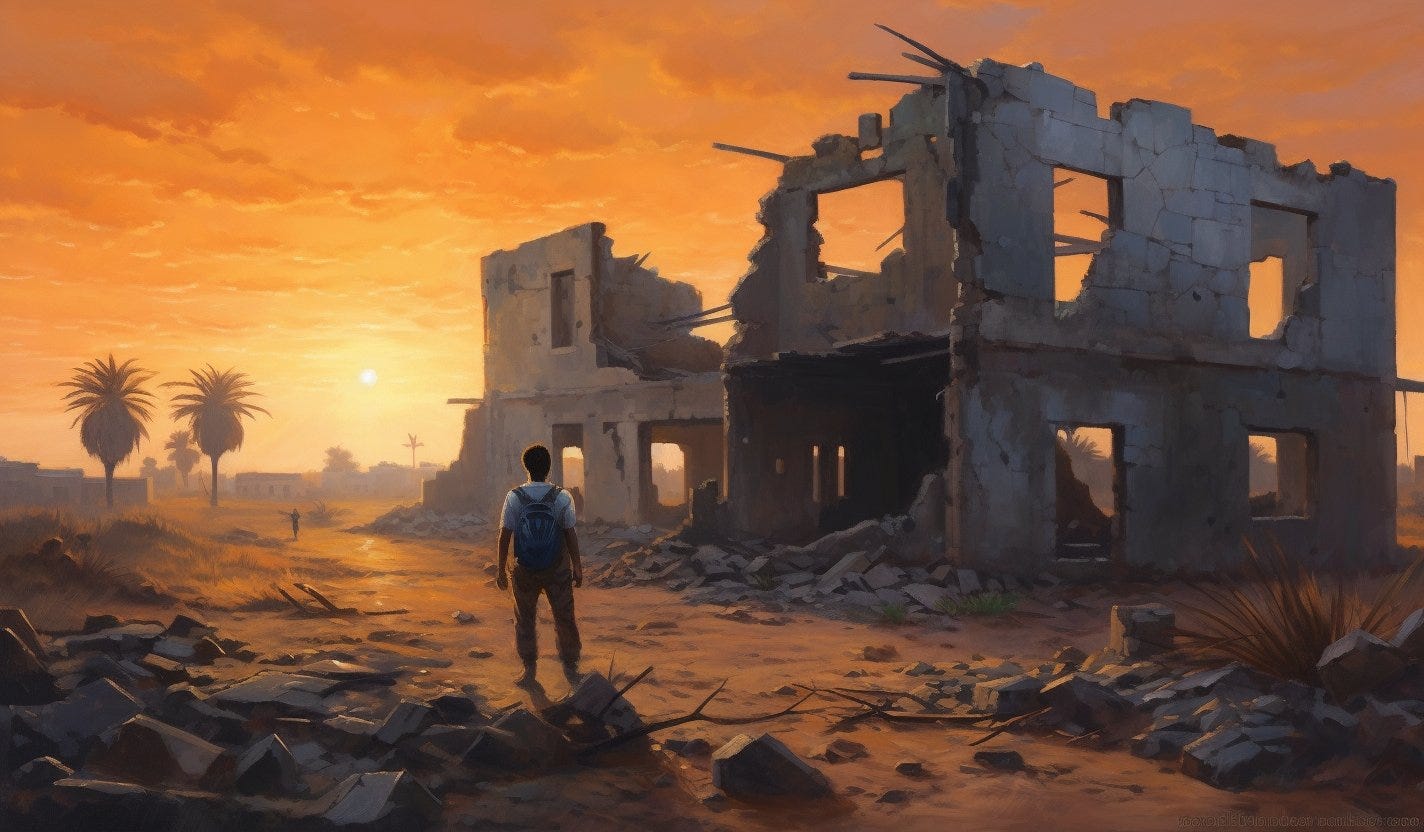Darfur Joint Force declares war on Rapid Support Forces
Former rebels renounce neutrality and align with Sudanese army
The Joint Force of Armed Struggle Movements (JSAMF), a coalition comprising various armed groups from Sudan's Darfur region, has formally renounced neutrality and declared war on the paramilitary Rapid Support Forces (RSF). This decision aligns them with the Sudan Armed Forces (SAF), which has been engaged in conflict with the RSF since April of last year.
The announcement was made in a press statement following a meeting of the Joint Force's leadership on Thursday in El Fasher. The JSAMF cited ongoing provocations, insults, attacks, and the hindering of humanitarian aid by the RSF as the primary reasons for ending their neutrality. The force also referenced a “treacherous operation” carried out by the RSF against one of the Darfur armed groups, despite assurances of neutrality.
“The Joint Force of Armed Struggle declares that there is no neutrality anymore and it will fight alongside its allies, nationalists, and the Armed Forces against the RSF militia and their mercenary allies. The Joint Force will not wait to be in a defensive position; rather, the only means of defense is offense,” the statement reads in part.
The Joint Force consists principally of troops of the Sudan Liberation Movement/Army (SLM/A) led by Minni Minnawi, and the Justice and Equality Movement (JEM) led by Jibril Ibrahim, as well as elements of smaller groups. It is led by Minnawi’s top field commander, Lt. Gen. Juma Hagar. The bulk of its forces are in North Darfur.
The political leaders of JEM and SLM-MM already renounced their neutrality in November, initiating limited operations against RSF in Eastern Sudan and Omdurman. But the field commanders in North Darfur until now mostly avoided conflict with RSF, operating principally within El Fasher, which the RSF avoided attacking.
The decision by Minnawi and Jibril's factions to abandon neutrality caused discord within the Joint Force. This led to the withdrawal of the Sudan Liberation Movement – Transitional Council (SLM-TC), led by El Hadi Idris, and the Gathering of Sudan Liberation Forces (GSLF), led by Tahir Hajar, two weeks ago. Their departure paved the way for the entire force to enter the conflict on the side of SAF.
Yesterday’s announcement emphasized that the JSAMF will shift from a defensive posture to an offensive one, saying,
“The Joint Force is not neutral and will fight the Rapid Support Forces militia wherever they are found. Defense was imposed by neutrality, and offense is now imposed by the lack of neutrality. Just as fasting is imposed by Ramadan, so is breaking the fast imposed by Sha'ban and the remaining months of the year.”
The announcement by the Joint Force follows a recent declaration by a senior RSF commander in Darfur. He branded forces from JEM and SLM/A as “legitimate military targets” and characterized Minnawi as a pawn of Sudan's former dictator, Omar al-Bashir, implicating him in what he termed “dark plans” for Darfur.
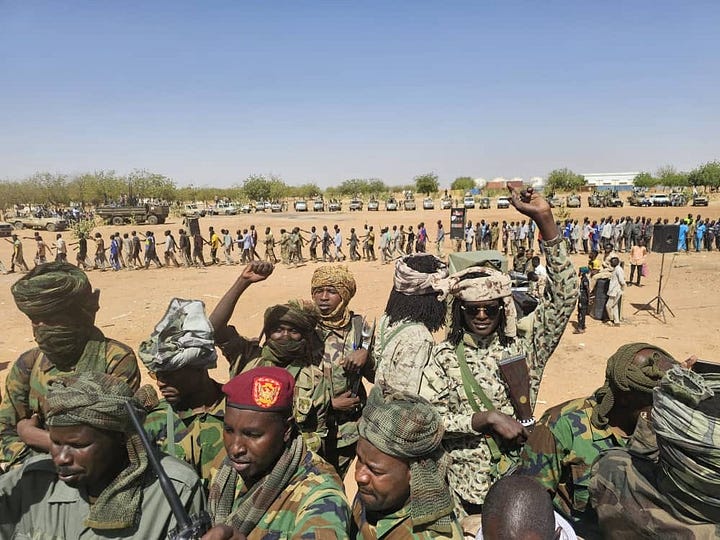
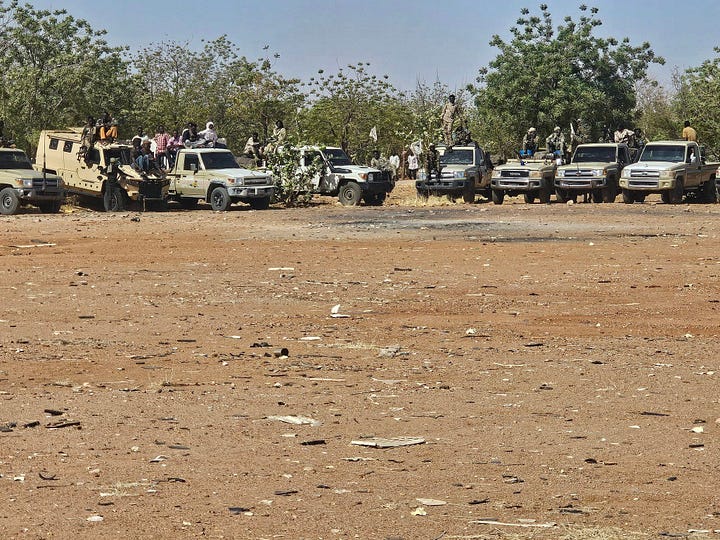
RSF rhetoric against the Darfur movements escalated in recent weeks as the movements deployed forces toward al-Jazira State. An ongoing SAF offensive seeking to recapture the state is being supported by JEM, SLM/A-MM and SLM/A faction led by Mustafa Tambour.
For context, the JSAMF was formed after the 2020 Juba Peace Agreement between the Sudanese government and several Darfur rebel groups. As envisioned in the agreement, it would consist of 6,000 soldiers from the military and an 6,000 from various Darfur factions, but the military never contributed its share of forces. The Joint Force was thus incompletely formed at the time the new civil war broke out in 2023. Since then, it served principally as a mechanism for maintaining unity between the two largest Darfur movements, JEM and SLM/A-MM.
Meanwhile, fighting erupted last night in El Fasher near the northern entrance to the city, and airstrikes were also reported. It’s unclear which parties were involved and details are not yet available. El Fasher is the only city in Darfur still under partial control of the Sudanese army, following the defeat of army garrisons in Zalingei, El Geneina, Nyala, Ed Daien, and other smaller cities last year.
Video
Lt. Gen. Juma Hagar, commander of the Joint Force, addresses his troops in El Fasher.
Related coverage:
USAID director seeks more funding for Sudan
There was an exchange about Sudan in the U.S. Congress on Thursday between U.S. Congresswoman Sara Jacobs and USAID Administrator Samantha Power. The director of the U.S. aid agency said that both warring parties have imposed “abominable” restrictions on humanitarian aid. She also asked the Congress for more funding in the form of a supplemental budget, following earlier cuts to the U.S. foreign aid budget.
Other news in brief
Writing for the Chr. Michelsen institute (CMI Bergen), University of Khartoum Professor Munzoul Assal explores the potential of the anti-war coalition Taqaddum, which is led by former Prime Minister Abdalla Hamdok.
Fighting continued Thursday along the Sennar-Jazira state border, and new video shows that RSF overran an army outpost, but the overall outcome is still unclear.
A humanitarian delegation led by UN Deputy Humanitarian Coordinator Toby Harward visited Mellit and El Fasher, North Darfur. He said during his visit to El Fasher, “Many thousands of innocent people will die very soon if the UN and its partners do not gain access and funding to respond to this catastrophe.”
A delegation of Sudanese church leaders met with the leader of Sudan’s military junta, Abdel Fattah al-Burhan, in Port Sudan. The delegation was led by Anglican Bishop Ezekiel Kondo, Coptic Bishop Anba Sarabamon, and the chairman of the Sudanese Council of Churches Rev. Ezzedine El-Tayeb. Afterwards they made pro-peace remarks that were, unusually, broadcast by the state military media.
Al-Burhan delivered a belligerent speech on the occasion Eid al-Fitr, promising military victory in the war, without mention of negotiations. He said, “We are determined and proceeding together on the same path, the path of the martyrs, until the expulsion of the last rebel and traitor from our land and the purification of every spot that rebellion has tainted.”
Al-Burhan also hinted at the type of post-war political arrangement he would prefer, saying, “There is no return to what was before April 15, 2023 [the era of the pre-war Sovereignty Council, in which the RSF leader played a leading part], no return to what was before October 25, 2021 [the era of the Hamdok civilian-military government], and no return to what was before April 2019 [the Omar al-Bashir dictatorship]. We will continue the conversation [about politics], God willing, after victory in the battle of dignity, a victory that is drawing nearer everyday, thanks to the unity and cohesion of the people with its armed forces.”
Support our journalism
Thanks for reading Sudan War Monitor. Our work provides situational awareness and supports risk assessment for those seeking to follow Sudan’s civil war. We also document war crimes and violations by both warring parties.
We’ve been able to sustain and grow this initiative thanks to a diverse network of supporters around the world. You can help by signing up for a monthly or annual subscription, or by making a one-time donation.


